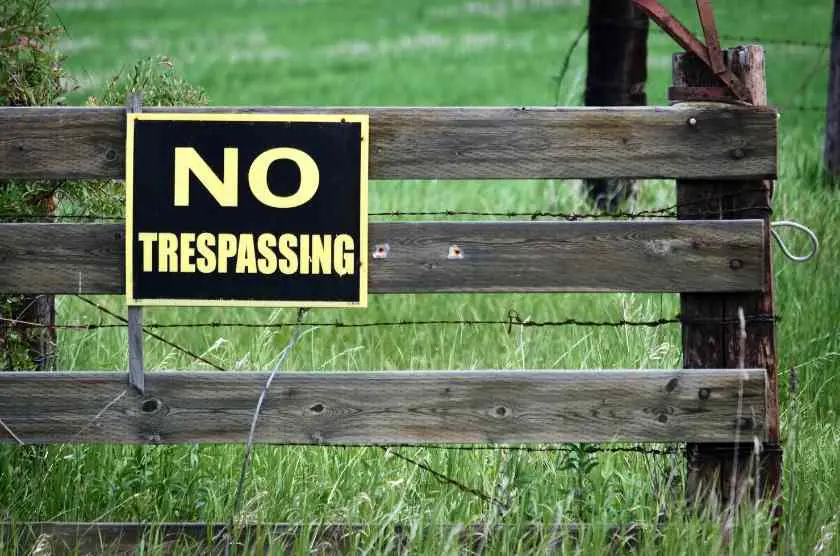The Florida Squatters Law is complicated, and it can be difficult for property owners to know what their rights are when they find squatters on their property. This article will outline 7 things every land or property owner needs to know about the law. We’ll discuss everything from how to evict a squatter, to your legal options in dealing with trespassers who refuse to leave your property.
Trespassers vs Squatters
A trespasser is someone who enters or stays on another person’s property without permission and with no legal right to do so. When an individual comes onto your property without your permission, you’ve got yourself a trespasser!
The main difference between a squatter and a trespasser is that a squatter has an intention to claim ownership. They don’t hide from the community or the owner of the property. Even though both trespassing and squatting are illegal, trespassers can be arrested while squatters have more rights.
In both cases, calling the police first is the best first step when you discover someone living on your property.
What are the Florida Squatter Rights?
Unfortunately, calling the police to remove a squatter will get them out of your property immediately, Florida’s laws require a property owner to file an Unlawful Detainer Action to remove a squatter from the property.
If the owner doesn’t do anything, the squatter has the right to file an Adverse Possession Claim.
The two types of Adverse Possession are:
With Color of Title
Without Color of Title
With Color of Title – Adverse possession under color of title is based on a written conveyance of the property that’s been recorded with the Clerk of Court but the title of defective or legally not sufficient. The owner who claims adverse possession has to have had continuous and open possession of the property for seven years in order to acquire title.
Without Color of Title claim, the squatter must have paid taxes and all other property obligations within one year of entry and also have to either improve the land or protect it with an enclosure. The seven-year possession also applies.
The difference between the two claims is that With Color of Title claim allows possession of the entire property that’s been recorded. Without color of title, the claimants can only acquire title to the land they physically possessed.
Can you evict a squatter in Florida and how long does it take?
In Florida, the legal process for removing a squatter is similar to evicting a tenant and it takes about three to four weeks. The owner needs to file an Unlawful Detainer Action. The answer is required in five days and a final judgment is usually issued within one month.
Is squatting a criminal offense?
Squatting is a civil matter and not a criminal offense. That’s why the police don’t want to get involved. They don’t know if the squatter has legal rights or not and that should be decided in civil court.
Trespassing on the other hand is either a first or second-degree misdemeanor. Armed trespassing is a third-degree felony.
Is a holdover tenant a squatter or a trespasser?
A holdover tenant is not a squatter. This term refers to an individual who has stayed past the expiration date of their lease or rental agreement without a lease and without the landlord’s agreement. The owner can file Unlawful Detainer Action lawsuit if the tenant refuses to leave after receiving a notice.
What do squatters own?
Squatters don’t technically own anything until Adverse Possession Claim is approved by courts and then you’ll receive title to your property! As soon as seven years pass with no action on your part, it’s game over! It becomes theirs!
How to prevent trespassing or squatting on your property?
The best way to prevent squatters on your property is to post a handwritten sign “No Trespassing” if you own land and fence your property. Leave contact information with a friendly neighborhood and ask them to call if they see someone on your property. Hire a property report service to check on your property from time to time.
The information provided in this article should help you understand squatters and their rights better. It’s a good idea to seek legal advice if you feel someone is wrongfully squatting on your property!
Resources:


